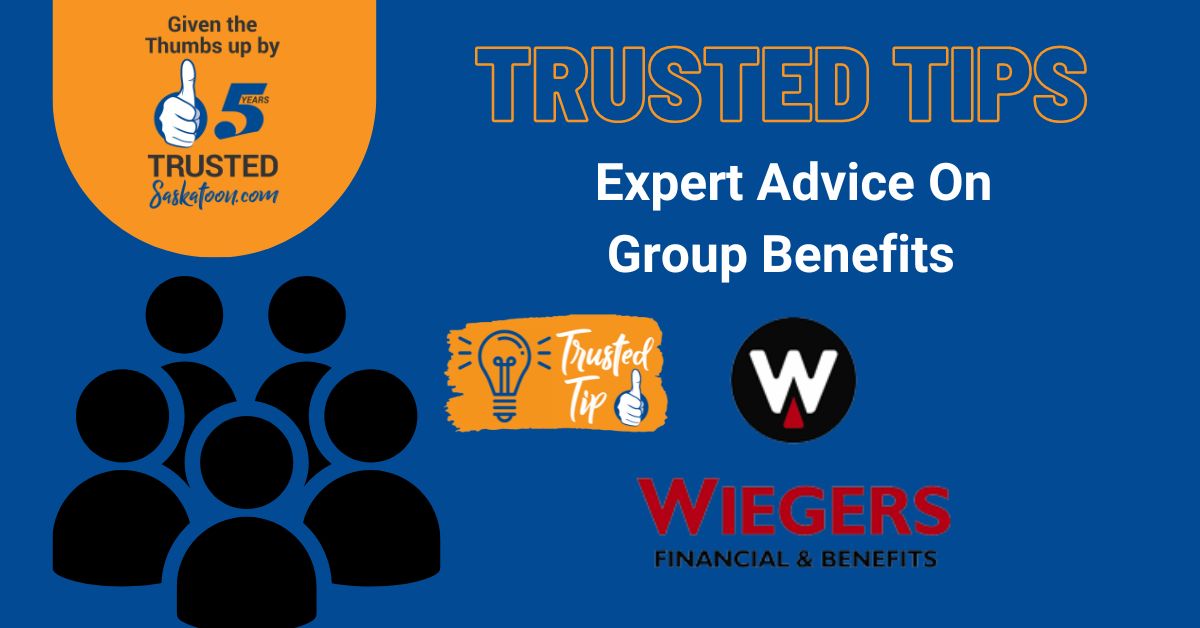Wiegers Financial & Benefits is one of the largest private financial planning and employee benefits consulting firms in Saskatchewan. Its Saskatoon Financial Planning Division provides business owners, households, retirees, and students with expert investment and insurance planning services to help them reach their long-term financial goals. They also have a Benefits and Personal Insurance planning, division. In this latest Wiegers Group Benefits expert tip, they explain how to maximize group retirement plans and the impact of employer matching. Wiegers Financial & Benefits are Trusted Saskatoon Insurance and Group Benefits experts.

At Wiegers Financial & Benefits, one of Saskatchewan’s leading financial planning and group benefits firms, we understand the challenges of attracting and retaining top talent. In today’s competitive job market, businesses need to stand out. More than ever, employees seek workplaces that prioritize their well-being. A strategically designed Group Retirement Savings Plan (GRSP) with employer matching can be a game-changing tool in your compensation strategy, helping to position your company as an employer of choice. Let’s explore how employer matching enhances retirement savings and benefits both employees and employers.
Understanding Employer Matching in Group Retirement Plans
Employer matching is a straightforward yet highly effective feature in group retirement savings plans. It involves the employer contributing funds to match a portion of an employee’s retirement contributions. Some companies match dollar-for-dollar, while others contribute a percentage, such as 50% of the employee’s contributions.
This shared investment fosters a partnership between employer and employee, reinforcing a commitment to financial security. But what makes employer matching such a crucial benefit? Let’s take a closer look.
Why Employer Matching Benefits Employees
1. Faster Retirement Growth
With employer contributions supplementing their savings, employees can build their retirement funds more quickly. The combination of matching funds and compound interest can result in significantly larger retirement savings over time.
2. Encouraging More Participation
Many employees hesitate to contribute to a retirement plan due to immediate financial priorities. Knowing that employer contributions are available can motivate employees to participate and contribute consistently, ensuring they don’t miss out on additional funds.
3. Greater Financial Stability
Financial concerns are a leading cause of workplace stress. Employer-matched savings plans help employees feel more secure about their future, reducing anxiety and improving overall productivity.
The Employer Advantage: Why Offering Matching Makes Sense
1. Attracting and Retaining Talent
A strong benefits package—including employer-matched retirement contributions—makes a company more attractive to job seekers. Prospective employees look beyond salary when evaluating offers, and a robust retirement plan signals long-term support and investment in their future.
2. Increasing Employee Loyalty
Employees are more likely to stay with a company that supports their financial well-being. Implementing a vesting schedule ensures that employer contributions become fully owned by employees over time, providing an incentive for long-term commitment.
3. Tax Benefits for Employers
Employer contributions to retirement plans are tax-deductible, offering financial advantages to businesses. Additionally, employees benefit from reduced taxable income, creating a mutually beneficial arrangement.
4. Boosting Employee Engagement
A workplace that invests in its employees fosters higher levels of engagement and satisfaction. When workers feel valued, they are more likely to be motivated, productive, and committed to their roles.
Addressing Common Concerns About Employer Matching
“What if our budget doesn’t allow for high matching contributions?”
Even a modest employer match can have a meaningful impact. Many businesses find that the long-term advantages, such as lower turnover and increased productivity, outweigh the costs.
“How do we ensure employees take advantage of the plan?”
Educating employees about the benefits of employer matching is key. Clear communication and financial literacy programs help employees understand the value of participation.
“How can we ensure fairness in our contributions?”
Setting clear and consistent matching rules across all eligible employees helps maintain fairness. Offering flexible options, such as different contribution levels, allows for inclusivity while ensuring equity.
Best Practices for Implementing an Employer Matching Plan
Establish Clear Limits: Define the percentage or dollar amount your company is willing to match to maintain financial control.
Implement a Vesting Schedule: This strategy encourages employees to stay with the organization longer by gradually increasing their ownership of employer contributions.
Educate Employees: Use multiple communication methods to explain the value of employer matching and encourage participation.
Consult a Group Benefits Expert: Work with a trusted financial consultant to develop a plan that aligns with your company’s budget and goals.
Regularly Review and Adjust the Plan: Ensure the plan continues to meet the evolving needs of your workforce and business.
The Real-World Impact of Employer Matching
Consider this example: Emily, a 35-year-old employee earning $60,000 annually, contributes 5% of her salary to her retirement plan. Her employer matches 50% of her contributions, adding $1,500 annually to her savings. With a 6% average annual return, Emily’s retirement fund could grow to over $250,000 by the time she retires—just from her employer’s contributions alone. This example highlights how even a modest employer match can significantly boost long-term savings.
Final Thoughts
Employer matching isn’t merely a business expense; it’s a long-term investment in your workforce and company culture. By implementing a well-structured matching program, you not only enhance your employees’ financial well-being but also create a more engaged and loyal team.
If you’re considering adding or improving an employer matching program, I can help. Let’s work together to design a plan that supports both your employees and business objectives. Reach out today to explore your options and start building a more secure financial future for your team—one contribution at a time.
The Advisor and Manulife Wealth Inc. and/or Manulife Wealth Insurance Services Inc. (“Manulife Wealth”) do not guarantee the accuracy of information from third-party sources and assume no responsibility for inaccuracies in linked content. The views expressed do not necessarily reflect those of Manulife Wealth. Information is subject to change without notice.
